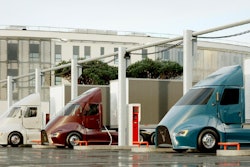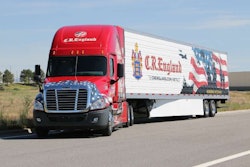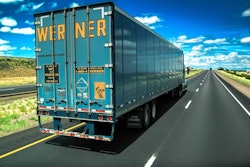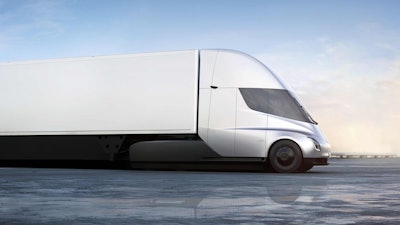
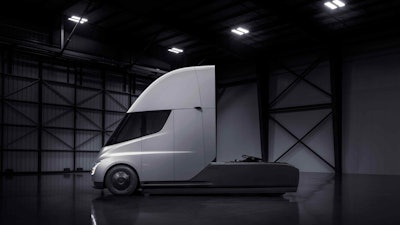
During the company’s earnings call this week, Musk told analysts he expects to sell 100,000 units or more annually by 2022. For perspective, ACT Research reported that 290,000 Class 8 trucks were ordered in 2017. By Musk’s estimation, Tesla would have accounted for 34-percent of the entire heavy truck order book last year.
“So if you take four years, I think, 100,000 units a year is a reasonable expectation,” he says. “Maybe more, but that’s roughly the right number, I think.”
Recently, Ruan Transportation Management Systems (No. 33 on the CCJ Top 250) joined the likes of UPS, PepsiCo, Anheuser Busch, J.B. Hunt, Walmart and several others to reserve the all-electric rig. Late last year, UPS placed an order for 125 Tesla Semis, while PepsiCo reserved 100 and Anheuser Busch reserved 40.
Tesla will not confirm total truck orders to-date, but speculation swirls that number could be anywhere between just more than 1,000 to several thousand more.
Driving the lofty order goals, Musk says he expects the truck to exceed the performance numbers originally announced for the tractor.
“I think we might be able to exceed the specs that we unveiled last year too, which is pretty exciting,” he says. “Another speculation that we might not meet them, but I think we’re going to exceed them.”
One small nugget buried in the call also confirms what many have long suspected: that the truck will most likely favor lithium ion batteries versus supercapacitors.
“I think the lithium-ion chemistry is so good at this point that capacitors will not be needed,” he says. “There’s a certain power to energy ratio, and once you have a huge amount of energy, which is needed for range, then you automatically have the power you need for … being able to do rapid acceleration and braking.”
“It’s maybe not intuitive, but the power to energy demand on the battery in the heavy truck is actually generally less than in our performance vehicles,” adds Tesla Chief Technical Officer J.B. Straubel. “It’s definitely less also in most cases than even the high rate of discharge energy products. As Elon said, you have you a lot of energy, so you end up with a lot of power, actually more than you need.”

